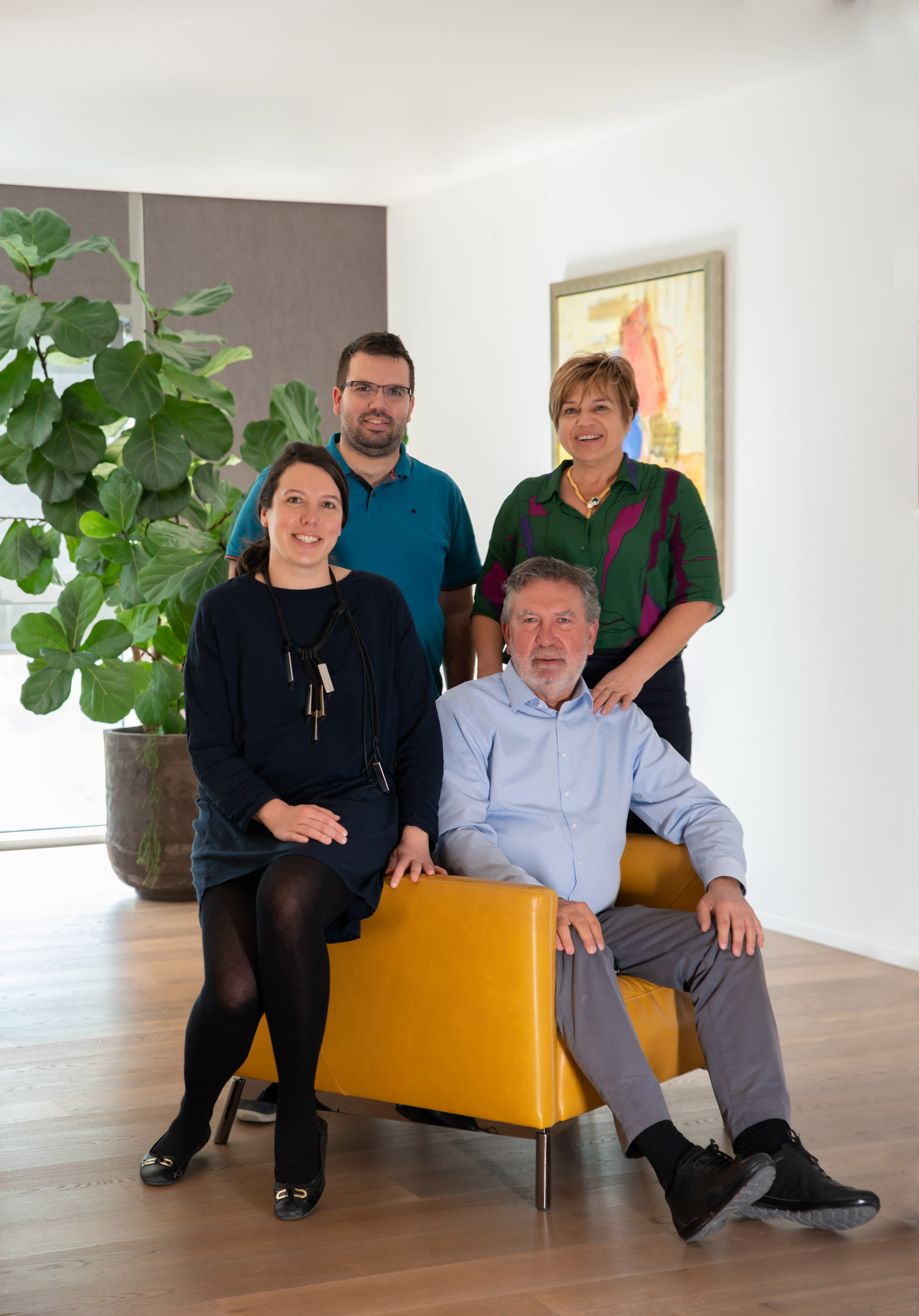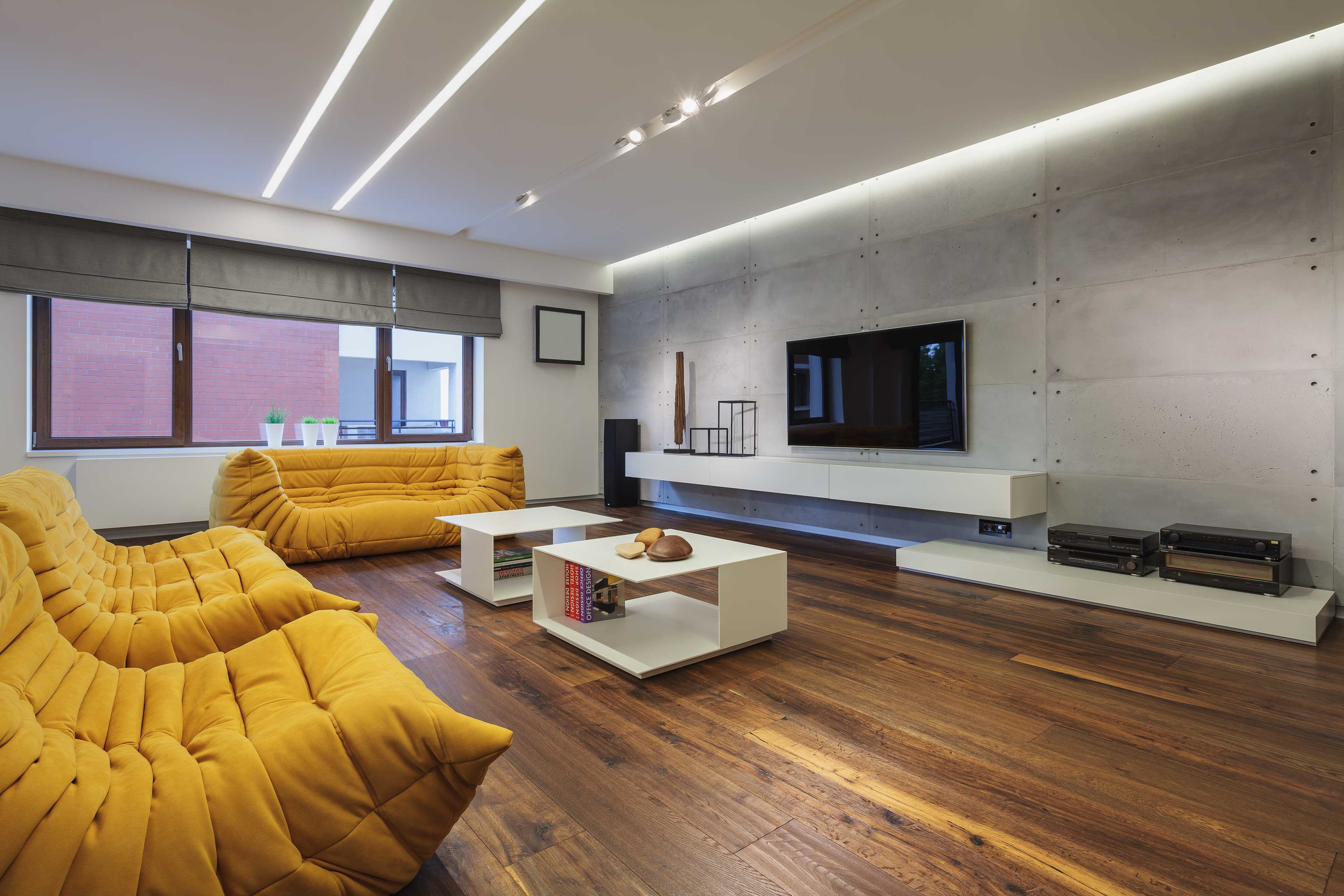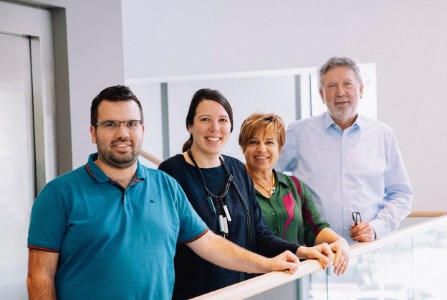Your mission is to ‘bring light’ to many companies and factories in Slovenia and abroad. Which aspects are the most important to help you with that mission?
Marino: We needed several years to define our mission, to put people who need light as our first priority. Second on the list is the space where people work, enjoy, live and buy. The space then needs light, which comes third. It must satisfy the people and accentuate the beautiful parts of architecture that are key to comfortable living. The light fixture that creates this light comes fourth, after all of that. We, of course, make light fixtures, but design them with our mission in mind. All our light fixtures respect our golden rule to put the light where it is needed, as much as is needed and when it is needed. This is important form the energy consumption standpoint, but also from the point of view that “less is more”. This does not change in other EU countries or in other cultures in the world, regardless of their religion and customs.
Marino, you said that “every company which does not expand is doomed to fail”. How will you expand and grow? Where are the limits? Where do you want to spread?
Marino: Companies are like team sports clubs, like football or basketball clubs, not like individual sports. Only teamwork brings victory. You can imagine that every team likes to win. But to win, they must work hard and have a clear strategy, which is what we also do in a company. People who work in a winning company are motivated. It is very important to keep that motivation, which comes from the people, relationships, and also knowledge. However, the key is innovation – the same goes for sports. Innovations put companies in privileged position and allow them to grow. This is important for the company itself, but also for the town and the country. My point is, that a third league game will only be seen in your own and neighboring village. We have always seen it as a challenge to compete in the first league all over the world. The market is huge. The possibilities are endless. But the fact is that it’s impossible to grow only at one location. In the last years we have invested a lot in other continents, for several reasons. Countries with multinational companies are always stable. Crises affect different continents, only rarely the entire world, as is the case with Covid-19. If there’s no growth, the motivation decreases, and the company stagnates. Most companies can function for a year, maybe three year with no investments, but definitely not five years.
Related article
All our light fixtures respect our golden rule to put the light where it is needed, as much as is needed and when it is needed. This is important form the energy consumption standpoint, but also from the point of view that “less is more”.
It is also important that people are ready to change and discover new opportunities …
Marino: It is just like in a football team. The team needs many people to play well, from psychologists, trainers and masseurs to strategists and assistants. But all we see are the players on the field. The same goes for companies. It is not enough to say that development and sales are key. Without all the other departments, the company has no chance of winning.
Why have you decided to hire and external CEO? Was it difficult to hand over the reins?
Marino: There are several reasons. 31 years is a long time in the life of one person. This is 40 to 50% of your life and most of your working life, when you must give up more or less everything so that you can do this one thing. One reason was definitely that I wanted to have some free time. The development of the company is without a doubt still in my hands, but there are many other things that must be done in every company, which also take up time. The new manager also covers another important role. It is not easy when the company passes in the hands of the next generation. I saw in my companies, that the successors do some things better and some things worse. Both my daughter and son are very creative, and it would not be good for them to be put into the big CEO shoes, especially as this requires a lot of experience. Unfortunately, there is a lot of bureaucracy, which can also be creative and must be done, but it is not something where I feel my best. We made the decision to hire a new CEO as a family. My wife asked: “What will I do then?” And I said: “The same as now, but you will have more time for monitoring.”
Anej and Nika, you have been co-owners of the company for almost 2 years. What does that mean to you? What responsibilities does it bring?
Anej: I have been working in development for five years. The first year was more difficult, you start something new, take on the responsibility and work with new people, even if you already know them. The responsibility of making something new has not changed with the co-ownership. I cannot say that I now feel more wight of responsibility.
Nika: I don’t feel that anything has really changed. On one hand, I understand this as a gesture of trust by Marino and Marjetka, as a sign they consider us grown-up and responsible enough to make us part of the company more tangibly.

You both grew up with the company. When and why have you decided to continue the work of your parents, each in your own way? Did you have to prove yourself even harder?
Nika: One advantage was definitely that there were several fields available in Intra lighting, so I could choose what interests me and try my hand at it. This way you can see whether you like something and whether you are good at it. But when you really start working, it is more difficult in some ways. More is expected from you. The boundary between coworker and parent does not exist in the beginning. You have to do more to prove yourself: not only to your parents, but also to other coworkers. Sometimes it feels like everybody things you are only here because you are the daughter or the son. You have to get over this and prove yourself.
Anej: I started working in the company very early, I worked here as a student every summer. I did all kinds of work, some I liked better than others, but I saw them as a challenge and tried to make them interesting. After a couple of years in the manufacturing I said that this is not all I want to do and that I’m interested in development. I always found it interesting to develop things, to make something news. I started drawing my first light fixtures more that 15 years ago and developed them over summer. I stepped away from Intra lighting for a couple of years and worked in another company, which also belonged to our family. I stayed there nine years and gained a lot of experience working with people etc. I also developed a “thicker skin”. When a reached a certain point in that company and could not longer develop anything, I returned to my “profession”, to what always brough me joy. I took over the development. I enjoyed this ever since I was little: I was a huge Lego enthusiast and participated in various competitions at Fishertechnik. Development has been a child’s play to me ever since I was little.
In the recent years you invested a lot into robotization, automatization and relocation. How bright does the future look for Intra lighting?
We live in an area with limited human resources. Slovenian educational system is producing and spitting out highly qualified, educated, academic people, which means there will be a lack of workforce in the future. Especially as people in Europe, or at least in Slovenia, can sometimes be to sensitive to immigrants. We must, of course, plan also for this. Everything must be planned, especially in a company. The only possible solution is to make everything even more robotized, even though we already robotized a lot. The machines can work on their own, even when there are no people in the factory. At least in theory, the practical reality is of course different. But the fact is that machines don’t make mistakes. They are productive even during lunch break. But this is a race. I have to point out that even in China, which is the factory of the entire world, things are being robotized as they are running out of workers even with more than a billion people. In the 18th century USA, people used to break down the machines because they feared they would lose jobs. There will always be jobs, as there are more and more things to be done in the service sector, in machine repair and servicing, but the manufacturing should be automatized and robotized further.

How do you see your company in 20 years? What are your goals, visions?
Marino: We, the European market makes up 78 % share for our company. We are already working on making it 60 % or less. This does not mean that we plan to ignore the European market, but that we must develop other markets. The world is big. We want to expand to the USA, not with sales, which would be impossible, but by copying the factories we have in Europe. We will definitely also conquer other markets. I do not see China as a challenge, so we won’t build there, but India, SE Asia, Middle East are definitely interesting. We will definitely move some things to these markets in the next 20 years. This is what multinationals do. If there is a crisis in Europe and you are too dependent on the European market, and the crisis repeats cyclically, this is a very hard blow. But if you also operate on other continents – economic and financial crises are always regional – you are not hurt by local crises as you operate all over the world. Our recipe is what I already said: light is for all people on this world, we all see it the same way. Investing heavily in development projects and innovation puts the team on any continent in a position that brings them motivation, confidence and success.
What are the encouragement and responsibilities related to the EY Family Business Award of Excellence 2021 you just won?
Marino: It is always nice to receive an award. We were also happy to be selected as one of successful companies in the EY Family Business Slovenia book years ago. It is a great honor to be selected as the winner, especially as there are no silver and bronze medals in the game of entrepreneurship, only golden: either you get the contract you invested in, or you don’t. We see this award as further encouragement and motivation. Awards are always important. Imagine that you come to a winery with 46 cabarnet sauvignons, which is my favorite wine. You do not know the wines; you can only select them according to their labels. You will certainly choose or at least try the awarded wine. I believe this recognition is very important for our company and we will definitely know how to promote it.
What is the “recipe” to grow a small family company into an international corporation.
Marino: The recipe is very simple. When the company is small, everything is simpler, everything is based on teamwork, everyone knows everything or almost everything, everyone understands the directions, learns from each other and cover several areas. But this of course limits the growth. However, when these people become independent and can pass their knowledge and experience onto others, departments start to form, new people come in and pass the same culture on. This is when you can make the next step. And if you know how to repeat these steps, it is very simple to create a corporation. If we look at today’s corporations in Amerika, which are based on knowledge and innovations, or Chinese corporations, which are based on masses of employees and low prices, we do not see ourselves in these directions. Our direction is to create pleasant ambient for our users, our final customers, and for people who design their spaces. The continent in large. Some people want to go straight to Mars and other planets, but our challenge right now is the Earth.
Related article
Summary
We talked to the Furlan family, the heart and the backbone of Intra lighting, winner of the 2021 EY Family Business Award Winner, about their mission, their plans for the future, succession planning and much more.


